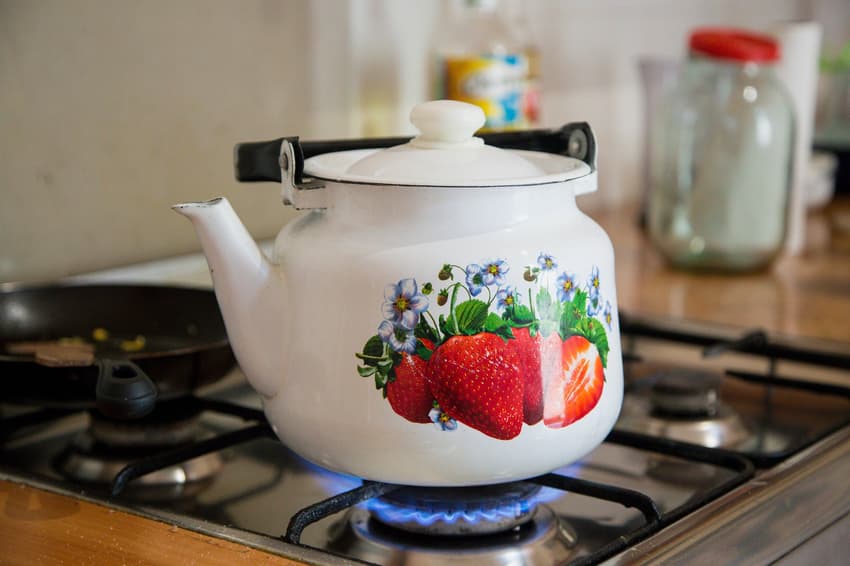UPDATE: 70,000 residents in Oslo and Bærum told to boil water due to E. coli

Residents in parts of Oslo and Bærum have been told to boil any water for consumption until at least Saturday after local authorities confirmed the presence of E. coli bacteria on Thursday.
Oslo Municipality told residents in Røa, Bogstad, Voksen skog, Midtstuen, Vettakollen, Voksenåsen, Holmenkollen and Tryvann to boil their drinking water on Wednesday.
In total, around 25,000 residents in these areas have been issued with the notice.
In Bærum, the recommendation was sent to around 46,000 residents in Eiksmarka, Østerås, Jar, Hosle, Haslum, Bekkestua and Nadderud.
On Thursday, the presence of E. coli bacteria in the contaminated water was confirmed by the authorities.
"It is impossible to say where the bacteria originated from. We are investigating whether there are any leaks," Simen Strand Jørgensen from the Water and Wastewater Agency told public broadcaster NRK.
"From September 20th at 4pm, everyone in the areas of Røa, Bogstad, Voksen skog, Midtstuen, Vettakollen, Voksenåsen, Holmenkollen and Tryvann is asked to boil their drinking water. This means that all water that goes into the mouth must be boiled first. This applies to water that is to be drunk, but also water that is, for example, used in coffee machines, for ice cubes or to brush teeth with," the municipalities wrote in an announcement on Wednesday.
"This can make people ill, and for safety's sake the municipality is therefore asking everyone who is within the area to boil their water. All those affected have been notified by SMS," the announcement added.
It isn't clear when the notice will be lifted, but it is unlikely to happen before September 23rd at the earliest. The municipalities will notify residents when the water is safe to consume again.
E. coli bacteria can cause diarrhoea and food poisoning, or more serious illnesses like pneumonia.
Comments
See Also
Oslo Municipality told residents in Røa, Bogstad, Voksen skog, Midtstuen, Vettakollen, Voksenåsen, Holmenkollen and Tryvann to boil their drinking water on Wednesday.
In total, around 25,000 residents in these areas have been issued with the notice.
In Bærum, the recommendation was sent to around 46,000 residents in Eiksmarka, Østerås, Jar, Hosle, Haslum, Bekkestua and Nadderud.
On Thursday, the presence of E. coli bacteria in the contaminated water was confirmed by the authorities.
"It is impossible to say where the bacteria originated from. We are investigating whether there are any leaks," Simen Strand Jørgensen from the Water and Wastewater Agency told public broadcaster NRK.
"From September 20th at 4pm, everyone in the areas of Røa, Bogstad, Voksen skog, Midtstuen, Vettakollen, Voksenåsen, Holmenkollen and Tryvann is asked to boil their drinking water. This means that all water that goes into the mouth must be boiled first. This applies to water that is to be drunk, but also water that is, for example, used in coffee machines, for ice cubes or to brush teeth with," the municipalities wrote in an announcement on Wednesday.
"This can make people ill, and for safety's sake the municipality is therefore asking everyone who is within the area to boil their water. All those affected have been notified by SMS," the announcement added.
It isn't clear when the notice will be lifted, but it is unlikely to happen before September 23rd at the earliest. The municipalities will notify residents when the water is safe to consume again.
E. coli bacteria can cause diarrhoea and food poisoning, or more serious illnesses like pneumonia.
Join the conversation in our comments section below. Share your own views and experience and if you have a question or suggestion for our journalists then email us at [email protected].
Please keep comments civil, constructive and on topic – and make sure to read our terms of use before getting involved.
Please log in here to leave a comment.